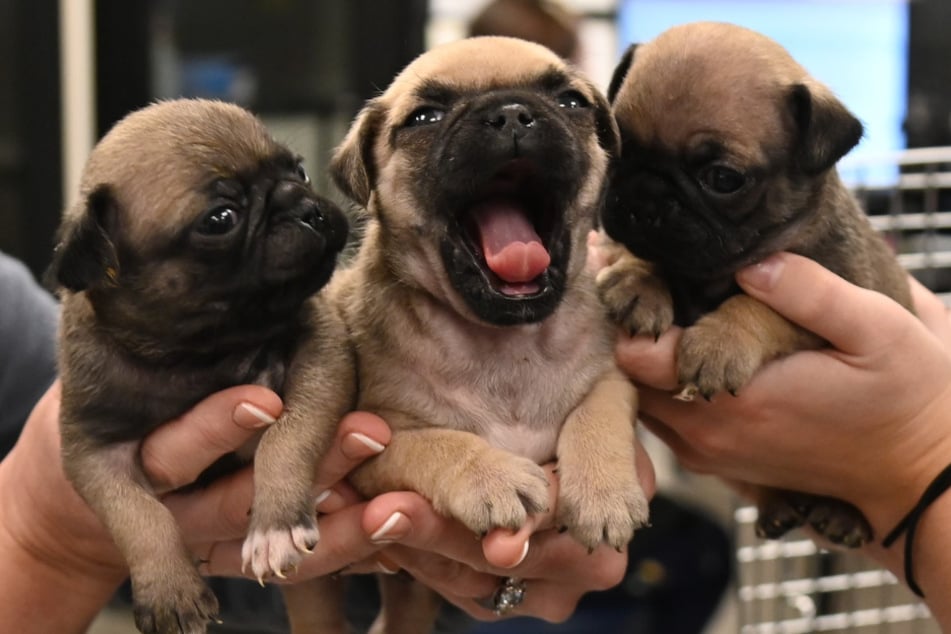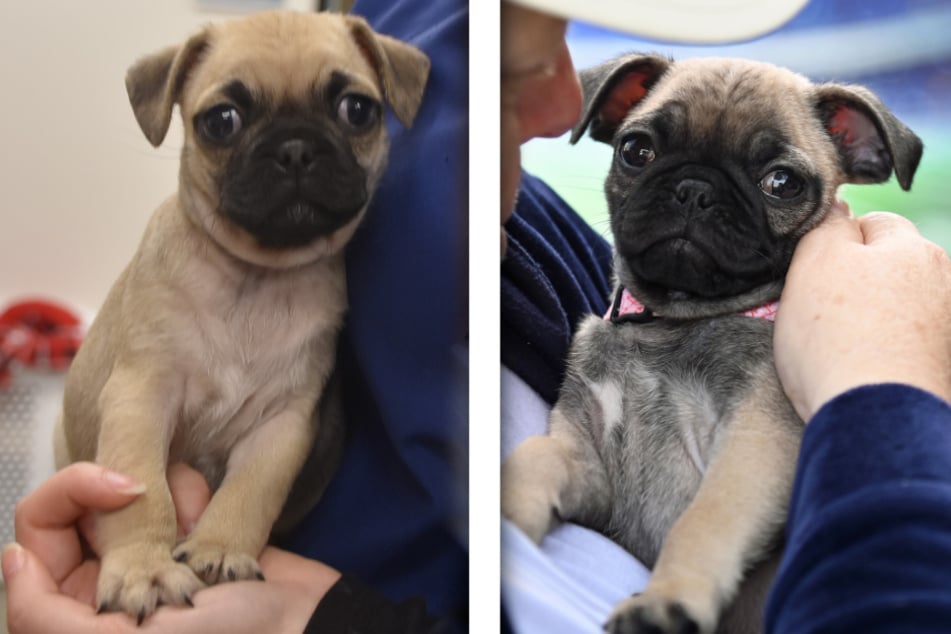Homeless man finds discarded puppies behind Taco Bell branch
San Diego - This behavior is just cruel: A whole litter of pug puppies was simply dumped in a trash can like garbage. Fortunately, they were found in time.

A homeless man discovered the four-legged friends in a bag in the garbage behind a branch of the fast food chain Taco Bell in San Diego (US state of California) in mid-December. He handed them over to a woman who drove straight to an animal welfare organization with the eight puppies.
The puppies were just a few hours old at the time, according to the Helen Woodward Animal Center, where the animals are now being lovingly cared for.
Tragically, one dog unfortunately did not survive the ordeal and died. The other seven, however, are now in perfect health.
At first, it was unclear what breed the four-legged friends belonged to. "We described them as 'terrier mixes', but they were so small and new that we knew they could be pretty much anything," explained Kendall Schulz, Head of Adoption.
But the more the puppies grew, the clearer it became that they must be pugs.
Pug puppies fought for their survival
Pugs can now be placed with loving owners

The staff affectionately named the four-legged friends the "rainbow puppies": Red, Orange, Yellow, Green, Blue, Indigo and Violet.
The seven dogs are now so fit that they have been able to be placed with loving families since Saturday. Dozens of people have already expressed their interest on social networks.
Animal welfare organizations have long been calling for the regulation of pedigree dog breeders, as many four-legged friends are neglected or abandoned after being bred in unsanitary conditions or for profit.
"If they are seen as a product rather than a living being, their survival can often depend on costs and profits," says Schulz.